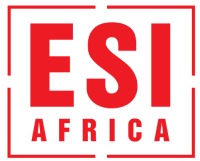Africa: How low-cost solutions can benefit water-smart farming
Pilot projects in Kenya, South Africa and Nigeria have already shown the effectiveness of reuse and circular water systems.
Agriculture remains Africa’s most water-intensive sector, accounting for nearly 70% of withdrawals across the continent, yet it continues to struggle with low yields, climate variability and inadequate infrastructure.
During a recent webinar presented by Water Security Africa and hosted by ESI Africa, expert panellists explored scalable alternative water strategies driving food production and agro-industrial resilience.
They agreed that the sector urgently needs to shift towards water-smart practices to protect productivity and farmer livelihoods.
Implementing cost-effective water strategies in Africa
They highlighted how simple, affordable technologies can drive major improvements in water efficiency in agriculture.
Drip irrigation systems, rainwater harvesting tanks and shade nets were cited as low-cost interventions that can be rolled out at scale.
Coupled with mobile apps that guide planting and watering schedules, these tools can help smallholder farmers reduce wastage while boosting yields, the experts said.
But, according to panellists, financing remains a major hurdle.
Small-scale producers often lack access to credit to invest in even basic equipment, but there are cost-effective solutions.
Nature-based solutions
Daniel Viviers-Rasmussen, Head of Sustainable Sourcing & Impact at NewForesight, said: “If we talk about farmers specifically… it doesn’t all need to be expensive or very difficult.
“There are relatively simple measures that can be adopted which are cost-efficient. These include using cover crops or mulching to preserve soil moisture, adjusting irrigation timing to better times of the day… such as night irrigation… and implementing water harvesting techniques.
“Such measures are particularly suitable for smallholder producers, as they can be adopted without major challenges or advanced technical expertise,” he said.
Molatelo Motau, Sustainability Projects Manager: Heineken Beverages, South Africa, said it’s important to look at nature-based solutions.
“From our side, we have focused on protecting freshwater resources and ensuring that catchment areas remain free of invasive species. We have also prioritised the protection of wetlands,” said Motau.
Another concern raised during the webinar is the lack of strong supply chains for inputs such as filtration units and pumps.
Call to support local; renewable energy initiatives
Participants also urged governments and the private sector to support local manufacturing and distribution of essential equipment, ensuring farmers can access spare parts and maintenance services close to home.
Beyond the farm level, panellists emphasised the importance of decentralised water supply systems.
Off-grid solar-powered pumps and treatment units, they said, could help communities secure reliable irrigation and drinking water without waiting for large-scale government infrastructure projects.
Despite the challenges, the experts are cautiously optimistic.
They noted that many pilot projects in Kenya, South Africa and Nigeria have already shown the effectiveness of reuse and circular water systems.
Expanding these initiatives and linking them to agro-industrial supply chains could unlock major efficiencies while reducing pressure on rivers and aquifers, they said. ESI
Cover photo: Precision irrigation systems and agricultural practices contributing to the efficient use of water in agriculture. Source: xtrekx©123rf.com


